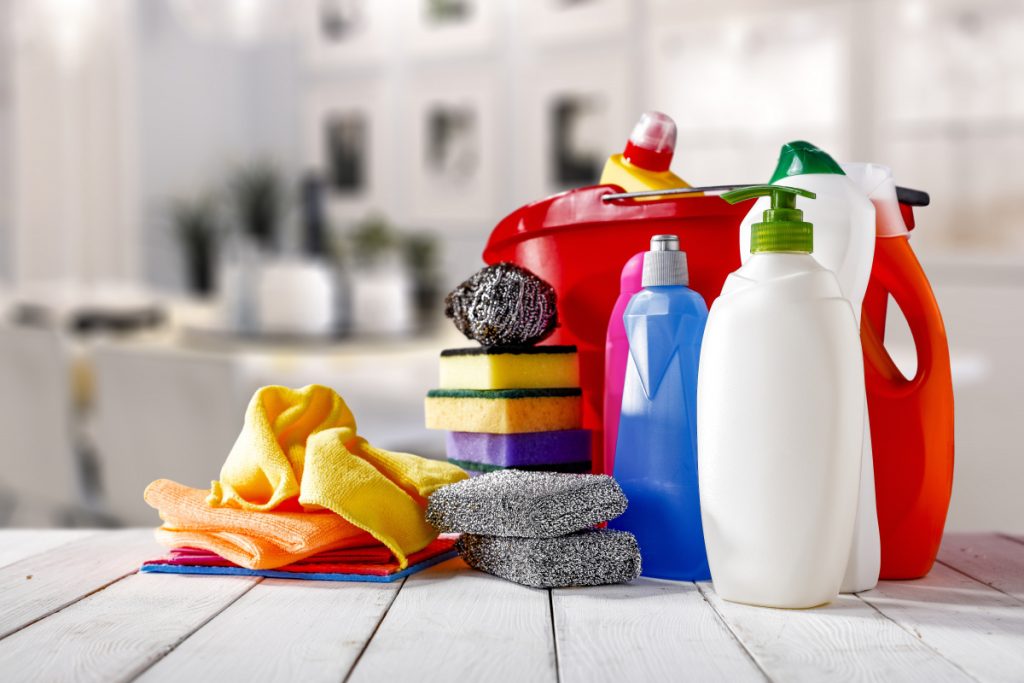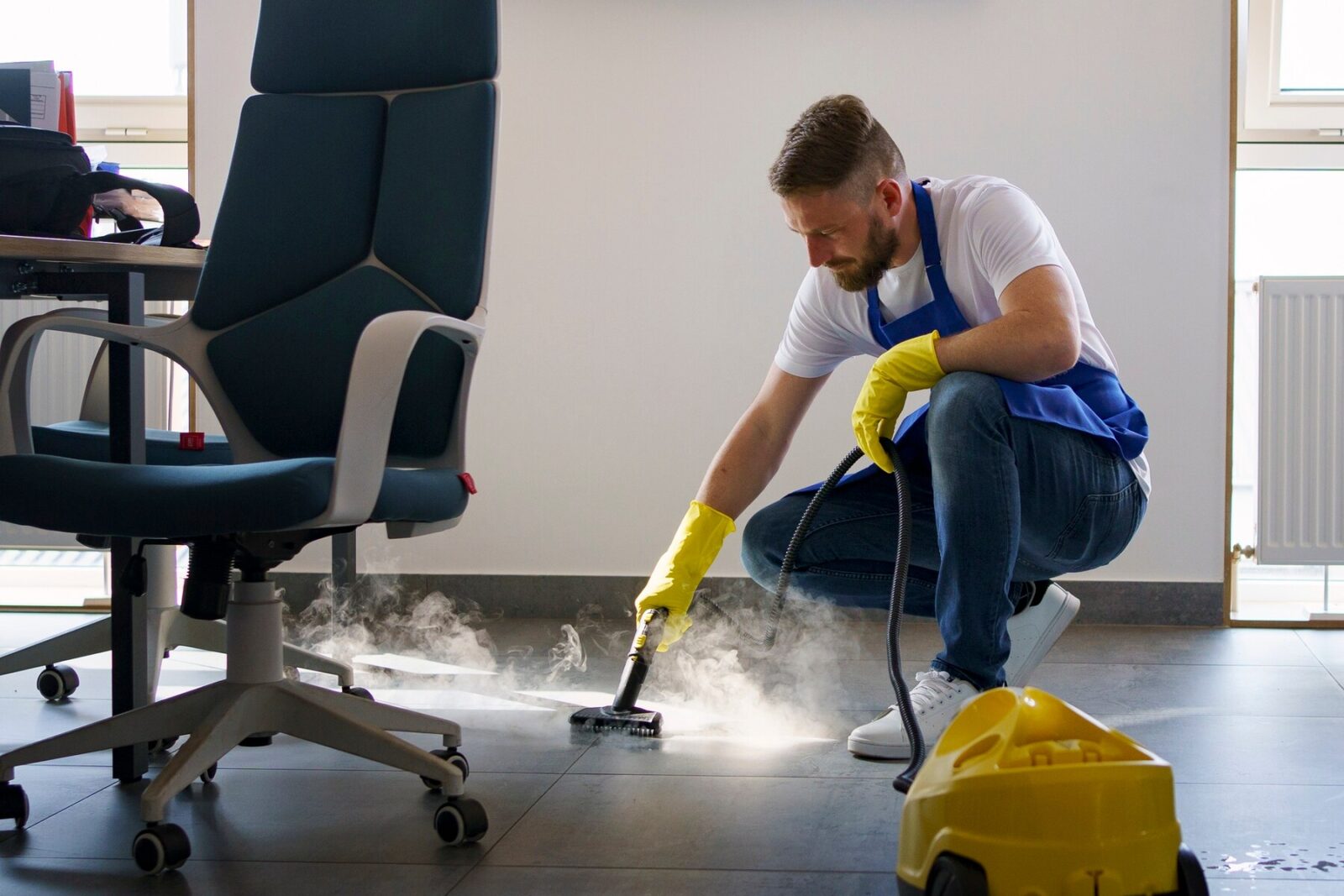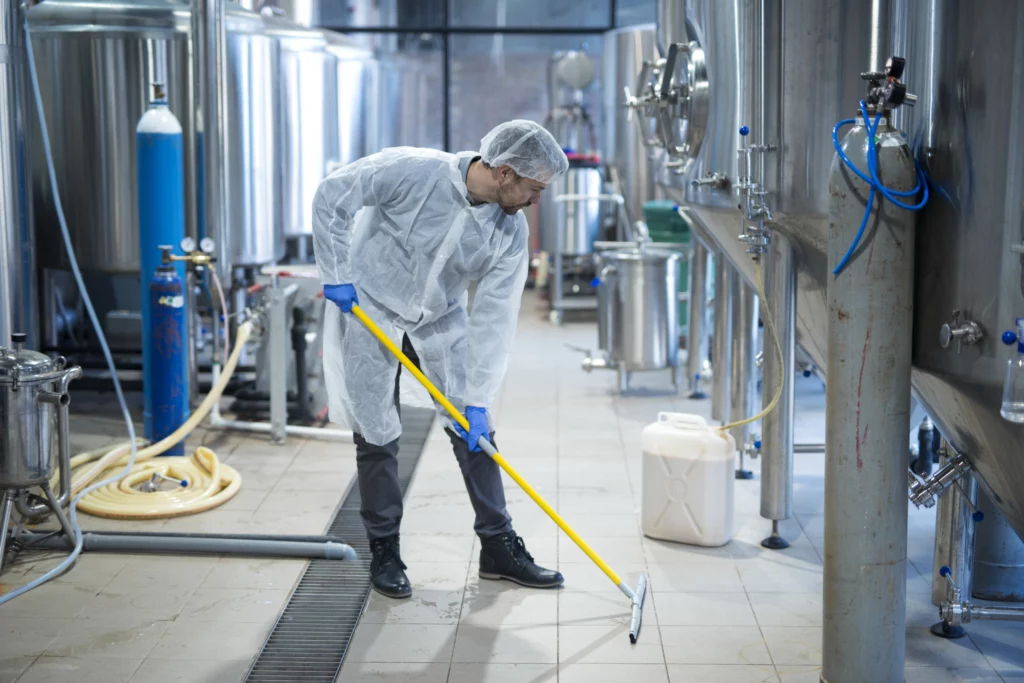
Choosing The Right Cleaning Supplies For Your Business – A Buyer’s Guide
Maintaining clean business premises is not just about appearance—it enhances employee well-being, creates a professional environment that delights customers, and...

Get 20€ off on your first order!
Struggling to maintain your concrete floors? Whether it’s dirt, stains, or general upkeep, choosing the right cleaner is key to keeping them in top condition. By the end of this article, you’ll know exactly which cleaner to use for your specific type of concrete floor—sealed, unsealed, polished, or outdoor.
We’ll provide expert recommendations and tips tailored to your needs, helping you select the best cleaner and tools for the job. Plus, once you’ve solved your current cleaning challenges, we’ll be ready to help with your next problem—whether it’s tough stains or outdoor maintenance. Let’s get started!
For a broader overview of surface cleaning products, check out our main article on Surface Cleaners.
Not all cleaning solutions are suitable for concrete surfaces. Choosing the right product ensures your floor maintains its finish, color, and remains residue-free. For instance, acidic cleaners are better suited for specific applications and should be used carefully to maintain unsealed concrete’s natural look and texture. Here’s why picking the right cleaner matters:
For an in-depth guide on selecting cleaning solutions for other surfaces, explore our related article.
The cleaning requirements for concrete floors differ based on their finish. Use the chart below to quickly determine the best cleaning approach for your specific floor type:
| Concrete Type | Cleaning Need | Recommended Cleaner |
| Sealed Concrete | Stain removal, general dirt | Neutral pH surface cleaners |
| Unsealed Concrete | Ideal for efficiently cleaning grease, oil, and other challenging spots | Degreasers or alkaline-based cleaners |
| Polished Concrete | Streak-free finish, light stains | Mild surface cleaners or antistatic cleaners |
| Outdoor Concrete | Mold, mildew, weather stains | Biodegradable cleaners with mold inhibitors |
For high-performance products, explore Surface Cleaners, including options designed specifically for residential, commercial, and industrial needs.
When choosing a cleaner, consider these factors:
For additional insights into home cleaning strategies and tools tailored to concrete floors, explore practical advice in this dedicated cleaning guide.

Effective cleaning also depends on the tools you use. Choosing the right equipment enhances the effectiveness of your cleaning routine and protects the surface of your floors. Here are some recommendations:
For specific cleaning challenges, you may also find these categories helpful:
You can learn more about these products in our comprehensive guides.
We hope this guide has been helpful in navigating the key factors for choosing the best concrete floor cleaners, from material compatibility to the right cleaning techniques. Whether you’re maintaining floors in a residential, industrial, or outdoor setting, we’re here to support your needs.
For more details on specialized cleaners, check out our full product catalog.
Have questions or need advice on finding the perfect cleaner? Don’t hesitate to reach out—we’re always here to help ensure your floors stay pristine and your cleaning process is hassle-free.
– The Droppe Team
Yes, a pressure washer can be used on sealed concrete, but ensure the pressure isn’t too high to avoid damaging the surface.
Regular cleaning and applying a protective sealant can help prevent stains and dirt buildup.
Yes, biodegradable cleaners with mold inhibitors are great for both indoor and outdoor concrete surfaces.
It’s best to avoid steam cleaners on polished concrete as moisture can affect the finish. Stick to mild, pH-neutral cleaners.
Use a degreaser or alkaline-based cleaner specifically designed for tough oil stains on unsealed concrete.
Thank you! You've signed up for our newsletter.



















Maintaining clean business premises is not just about appearance—it enhances employee well-being, creates a professional environment that delights customers, and...

Not sure which cleaner is best for your floors? This article will provide you with all the information you need...

Selecting the right disposable cutlery is key to running efficient food service operations, whether you’re in hospitality, catering, or food...

Maintaining clean business premises is not just about appearance—it enhances employee well-being, creates a professional environment that delights customers, and...

Not sure which cleaner is best for your floors? This article will provide you with all the information you need...

Selecting the right disposable cutlery is key to running efficient food service operations, whether you’re in hospitality, catering, or food...
Get 10€ off on your first order!
Save 30% by buying directly from brands, and get an extra 10€ off orders over €100
Save 30% by buying directly form brands, and get an extra 10€ off orders over €100